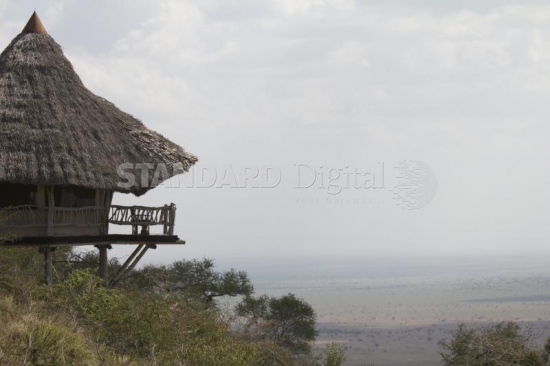×
The Standard e-Paper
Stay Informed, Even Offline

The LUMO Community Wildlife Sanctuary in Taita-Taveta is a perfect getaway from the hustle and bustle of the concrete jungle. It is spread over 40,000 square kilometres and the secluded Lion’s Bluff Lodge therein offers an idyllic setting to recharge the mind, body and soul
The community-owned Lion’s Bluff is perched atop a ridge overlooking the scenic acacia-studded savannah, designed to blend in with the natural surroundings.